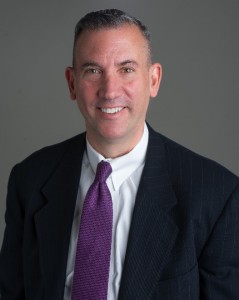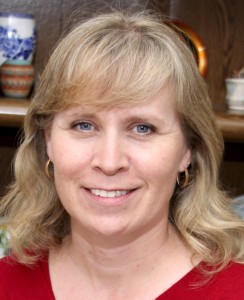Immersive Learning through Summer Internship
As a professional graduate school, the Middlebury Institute of International Studies at Monterey places great emphasis on immersive learning which is defined as “intensive, authentic, and contextualized learning that is active, applied, and hands-on and that is related to a specific professional career path.” One of the best ways for our students to maximize their immersive learning is through internships. Six of our 2nd year T, TI, CI students recently shared their internship learnings with the first year students in TED-style presentations. I posed the following questions to them after their presentations.
Erin Compton (MATI, 2016. English/Spanish. delsurtranslations, Argentina.)
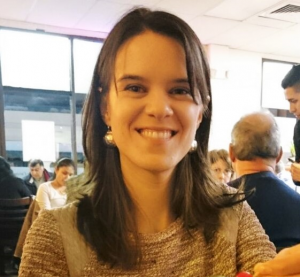
WH: What was the #1 selection criterion as you looked for an organization to intern?
EC: I sought hands-on technical training and exposure to real-world translation and/or interpretation work in a Spanish-language environment.
WH: What insights did you gain about yourself and your professional future thanks to the internship?
EC: I learned what contexts best foster my ability to produce good work and identified ways to overcome my weaknesses as a translator. I also gained more clarity regarding sector niches to consider moving forward; developing specialized expertise is one of my foremost professional goals.
WH: From the employers’ perspective, what does a good intern look like while working for them?
EC: In addition to demonstrating an eye for detail and dedication to high quality, my employers appreciated a positive and collaborative attitude. Flexibility is also important, as projects, schedules and plans can change.
WH: Any other words of wisdom to share with the 1st year students?
EC: Don’t be afraid to say you don’t understand something or need further explanation; this is your chance to ask all the questions you can in a safe and supportive professional environment before venturing out on your own. You will be interning amidst professionals who are in positions similar to those that you aspire to fill. Don’t let the opportunity pass you by!
Anelix Diaz Quinones (MATI, 2016. Spanish/English. Organization of American States, U.S.A.)
 WH: What was the #1 selection criterion as you looked for an organization to intern?
WH: What was the #1 selection criterion as you looked for an organization to intern?
AD: I wanted to have the experience of both translating high register documents in an organization using a CAT tool I’ve never used before and interpreting in a mute booth in high profile and confidential meetings.
WH: What insights did you gain about yourself and your professional future thanks to the internship?
AD: In very simple words, I challenged myself and realized I’m capable of doing so many things that I thought I couldn’t do. I learned to believe in myself. Most importantly, I realized that I still do have a passion for conference interpreting and that this is the type of setting where I would love to work in the near future.
WH: From the employers’ perspective, what does a good intern look like while working for them?
AD: From the employer’s perspective, a good intern:
- Follows specific translation guidelines given by the reviser
- Is able to meet very tight translation deadlines
- Is able to learn how to use a tool without needing constant assistance
- Gets along with the T&I team
WH: Any other words of wisdom to share with the 1st year students?
AD: Even though they don’t expect you to know how to use Trados Studio 2014 perfectly, it would be best if you could be already be familiarized with some of its basic features. Otherwise, you would have to study the guide on your own and then maybe ask specific questions. Also, it’s a good idea if you could visit their website and take a look at their thorough glossary and other useful resources available for OAS translators. These sources can be helpful for interpreting too. Lastly, since you won’t be too overloaded with work, take advantage of your free time and observe meetings of the Permanent Council, which are open to everyone who works at the OAS, and listen to the interpretations. Be willing to learn at all times!
Katrin Larsen (MATI, 2016. Japanese/English. WIPO, Switzerland)
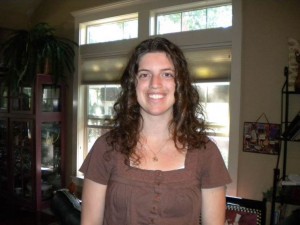 WH: What was the #1 selection criterion as you looked for an organization to intern?
WH: What was the #1 selection criterion as you looked for an organization to intern?
KL: Useful career experience
WH: What insights did you gain about yourself and your professional future thanks to the internship?
KL: I originally wanted to see whether I liked patent translation and the possibilities in this area for my future career, and through this internship I learned about what patent translation entailed and was able to develop skills that will help me in this area in the future.
WH: From the employers’ perspective, what does a good intern look like while working for them?
KL: I believe that WIPO wants an intern who is curious and open to learning, who will be able to quickly learn about a very difficult and technical area of translation while also keeping their intrinsic writing skills in English to produce a translation that is both accurate and readable.
WH: Any other words of wisdom to share with the 1st year students?
KL: Everything that you do can be an experience, so what is most important is to determine what you can learn from a given experience and to get the most out of it. Don’t worry that you might be wasting time on the wrong thing—rather determine what insights you can gain and focus on applying them towards your future.
Anna Suades Vall (MATI, 2016. Spanish/English. DA Office New York County, U.S.A.)
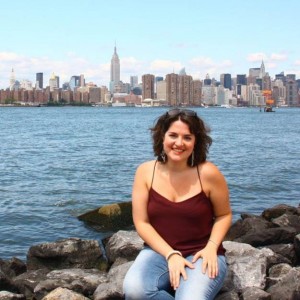 WH: What was the #1 selection criterion as you looked for an organization to intern?
WH: What was the #1 selection criterion as you looked for an organization to intern?
AS: The possibility of gaining interpreting experience.
WH: What insights did you gain about yourself and your professional future thanks to the internship?
AS: The internship made me realize that I am ready to and capable of translating and interpreting in the professional world. It also confirmed what I suspected; I love interpreting in court settings and I would like to combine conference interpreting with this other modality.
WH: From the employers’ perspective, what does a good intern look like while working for them?
AS: Someone who is eager to learn, proactive and hard working.
WH: Any other words of wisdom to share with the 1st year students?
AS: The main advice I can give them is to be patient and to keep their mind open to different possibilities. They might not know where they will intern until the very last month of the semester. I would also say that it is important to keep in mind that no matter where they go, they will be there to learn, they don’t need to know everything beforehand. Accepting this will help them enjoy the experience even more.
Lijuan (Delia) Wang (MACI, 2016. Chinese/English. Workday, U.S.A.)
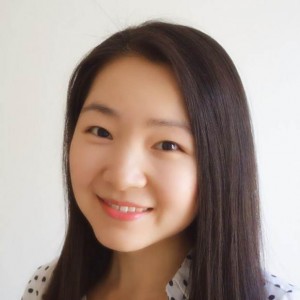 WH: What was the #1 selection criterion as you looked for an organization to intern?
WH: What was the #1 selection criterion as you looked for an organization to intern?
DW: Does it offer a position that challenges me and makes my summer worthwhile?
WH: What insights did you gain about yourself and your professional future thanks to the internship?
DW: I discovered the fact that I can be very tech-savvy, if not everything else I want to be, as long as I put my mind to it. The internship also put localization PM on my radar as a potential future career path.
WH: From the employers’ perspective, what does a good intern look like while working for them?
DW: I have a long list of adjectives to describe an ideal intern, but all of them truly boils down to some basic qualities: a good intern knows how to carry himself/herself in a professional setting and think like a business owner on a daily basis.
WH: Any other words of wisdom to share with the 1st year students?
DW: Think as if you own the business (not the part of bossing people around)!
Kimberley Hunt (MAT, 2016. English/French. Technicis, France)
 WH: What was the #1 selection criterion as you looked for an organization to intern?
WH: What was the #1 selection criterion as you looked for an organization to intern?
KH: I was looking for an internship, preferably paid, in a French-speaking country to improve my language skills.
WH: What insights did you gain about yourself and your professional future thanks to the internship?
KH: I learned that I loved translating and that I definitely chose the right career path for me.
WH: From the employers’ perspective, what does a good intern look like while working for them?
KH: I produced quality work and asked questions when I didn’t know how to do something, instead of just sitting around having no idea what to do.
WH: Any other words of wisdom to share with the 1st year students?
KH: You will be pleasantly surprised by how professional your training at MIIS is, and how prepared you are to do real-world work during your internship.
–Winnie Heh
Career & Academic Advisor
wheh@miis.edu

